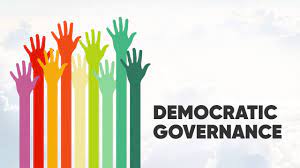Like every creed which promises paradise and is uninhabitable in its complete sense because of the conditions attached to it, democracy is a system of government that is thought of by many as the perfect utopia. In African countries, every daring attempt to make a great change in existing conditions, every lofty vision of new possibilities for the citizens has been associated with the practice of democratic governance. However, democracy has been adulterated in its practice to the extent that the very idea of it is sometimes nauseating, to say the least.
From the very fountain of the enchantment of democracy, there arises a taste of abuse by both government and the governed which spreads a taste of bitterness and anguish among observers. In Ghana, for example, the principles of democracy like equality before the law have been so abused that public officers are openly disrespected and insulted including even the office of the president. Public officers on the other hand refuse to practice the principle of separation of powers which will engender complete confidence and trust in them by the citizenry. They pick and chose the principles that please them leaving themselves vulnerable to unnecessary criticism.
Many young politicians in Ghana denigrate public officers and offices with the only motivation being in political opposition. These young people have exalted notions because they have not been humbled by life or learned its limitations. Moreover, their hopeful disposition makes them think of themselves as equal to great things and that means having exalted notions.
It is our attitude towards free speech that will determine our fate. Thus, though free speech is an integral part of every democratic dispensation, it must be used responsibly. Where free speech fails to promote national cohesion and unity, its usefulness is called into question. Daily, reports of insults on high-ranking politicians and citizens abound in both the traditional and digital media. This state of affairs is gradually becoming the norm as the two major political parties in Ghana, the New Patriotic Party and the National Democratic Congress directly and indirectly incite their followers to go on public platforms with insults on political opponents.
The political parties have to train and guide their young activists in the art of effective and decent political communication. Hard words do not break bones, is the wise saying. Democracy in itself comes with responsibilities of responsible citizenship. For Ghanaians to enjoy the full benefits of democracy, we must make efforts to safeguard state institutions and respect public officers.
Technology has brought in its wake social media with a hidden identity of some users who use it to inflame passion, insult and denigrate public officials. This phenomenon is not only affecting the way the youth react to issues of national interest but has made them active participants in the political process. However, the youth must be guided not to use the media as an avenue of pouring out invectives on public officers without any provocation.
Patriotism, protection of public property, defense of national ideology must be critical areas for consideration for policymakers. Because public office holders are important, they should be supported or opposed exactly to the degree which is warranted by their good conduct or bad conduct, their efficiency or inefficiency in rendering loyal, able, and disinterested service to the nation as a whole. When we criticize, we must be quick to offer alternative suggestions that help address issues of national interest. This way, our criticism will be taken in good faith and seen as a positive alternative to the nation-building agender rather than criticisms of political convenience.
When democracy is practiced to make society a better place to be, we will identify the loopholes in it and take stringent efforts to make it a better system. However, when we practice democracy for individual interests, we are likely to take advantage of the loopholes to the detriment of the public interest.



